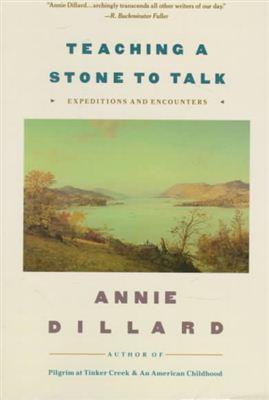What do you think?
Rate this book


175 pages, Paperback
First published October 13, 1982
It is madness to wear a ladies straw hat and velvet hats to church - we should all be wearing crash helmets. Ushers should issue life preservers and signal flares and lash us to our pews for the sleeping god may wake someday and take offense, or the waking god may draw us out to where we can never return.
We are here on the planet only once and might as well get a feel for the place. We might as well get a feel for the fringes and hollows in which life is lived.